OTC hearing aids: Doctor recommends hearing test before buying
OTC hearing aids: Doctor recommends hearing test before buying
Over-the-counter hearing aids hit the shelves last week. The cost for the devices can be thousands of dollars less than doctor-prescribed pair. Still, there’s a lot consumers need to know before spending between $200 to $3,000 at a major retailer.
MILWAUKEE - Over-the-counter hearing aids hit the shelves last week. The cost for the devices can be thousands of dollars less than doctor-prescribed pair. Still, there’s a lot consumers need to know before spending between $200 to $3,000 at a major retailer.
Pat Ehlert volunteers once a week in the gift shop at the Wilson Park Senior Center. Her banter with customers behind the counter would not come so easily without her two hearing aids.
"Noisy environments can be hard for hard-of-hearing people," Ehlert told Contact 6.
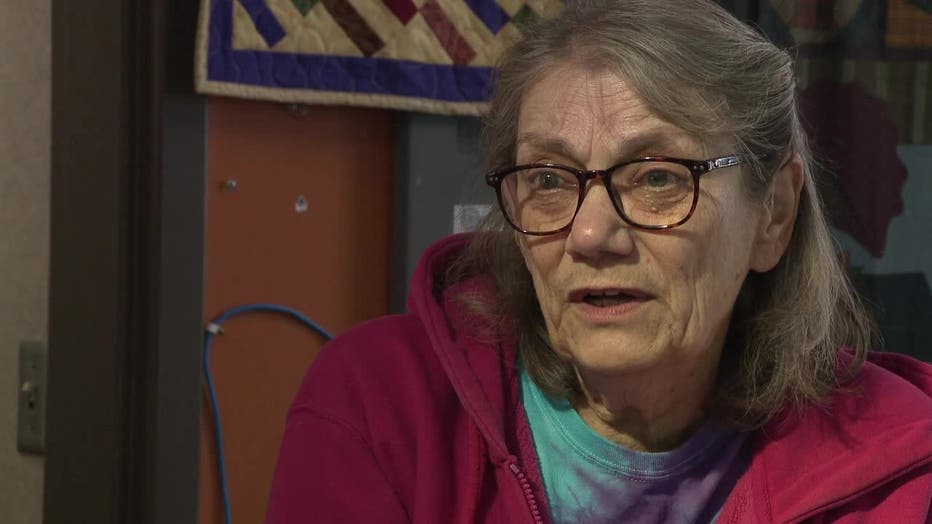
Pat Ehlert
The FDA says hearing loss affects nearly 30 million U.S. adults. Yet, only one in five who could benefit from hearing aids has ever used them, according to Walgreens.
The National Institute of Deafness and Other Communication Disorders (NIDCD) says among adults ages 70+ with hearing loss, fewer than 1 in 3 has used hearing aids. About 1 in 6 adults ages 20 to 69 who could benefit from hearing aids has ever worn them.
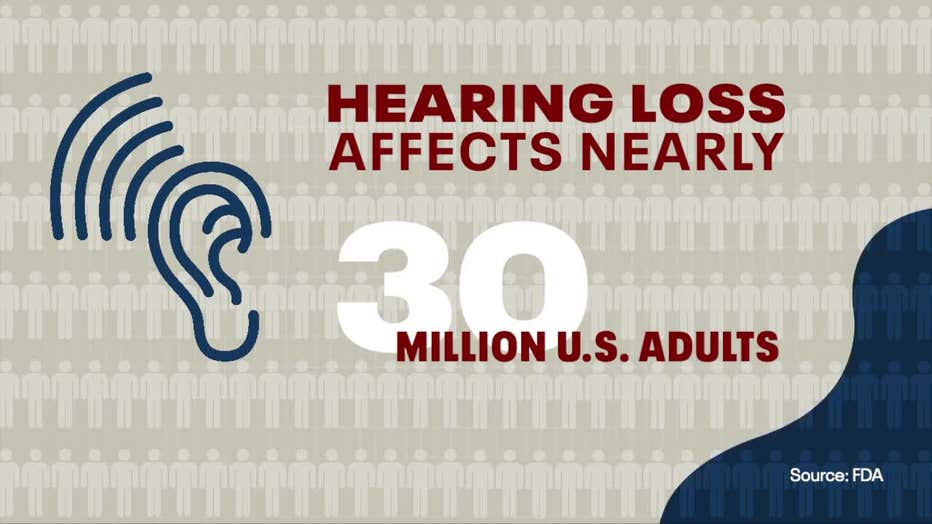
Ehlert understands one big reason why.
"The cost can be prohibitive for people on really fixed incomes," said Ehlert.
Ehlert got her hearing aids through an audiologist, but as of October 17th, hearing aids are available on the shelves at Walgreens locations in southeast Wisconsin to anyone over 18.
SIGN UP TODAY: Get daily headlines, breaking news emails from FOX6 News
In a statement, a Walgreens spokesperson told Contact 6, "Walgreens is committed to breaking down barriers to offer convenient access to affordable health and wellness solutions."
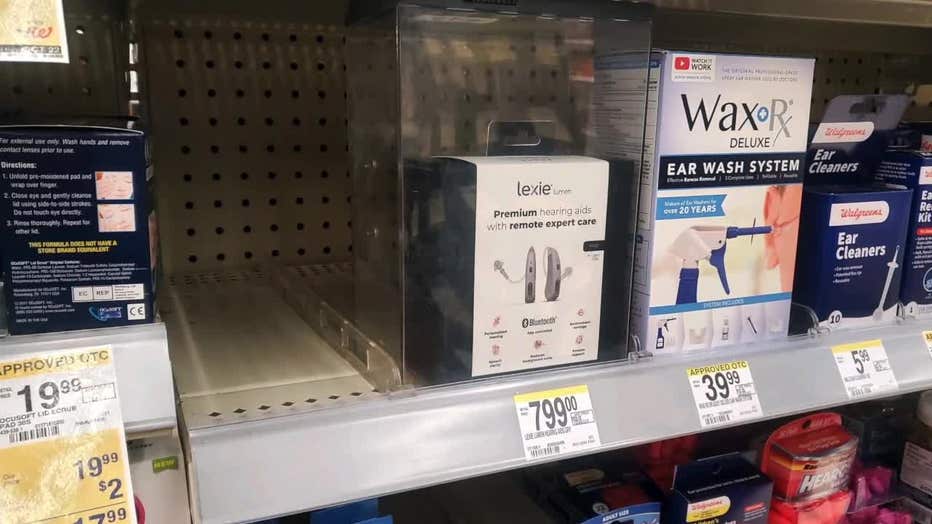
Customers don’t need a prescription, exam or fitting to buy hearing aids over-the-counter, or online through Walgreens, CVS, Walmart, Best Buy or Hy-Vee.
"The goal is that it’s trying to open up the availability of hearing aids and hearing devices to a wider range of people," explained Molly O’Hearn, an audiologist at Aurora Medical Center in Mount Pleasant.
O’Hearn says she’d rather her patients get some hearing help, than none. Hearing loss can lead to social isolation, a risk factor for depression, dementia and Alzheimer’s. But, O’Hearn says over-the-counter hearing aids will only work for a narrow group of people with mild to moderate hearing loss.
"It’s similar to how you can go to Walgreens and buy a pair of glasses or readers just off the shelf," said O’Hearn.
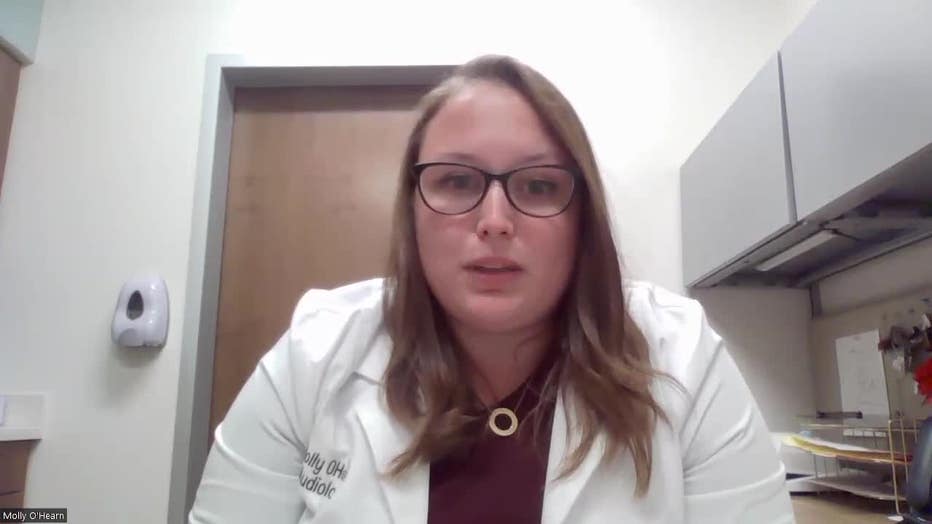
Molly O’Hearn
Before investing hundreds or thousands of dollars on hearing devices at a retailer, O’Hearn recommends consumers get a hearing test. They can ask their primary care doctor for a referral. Insurance should cover the test, which usually takes 30 to 40 minutes.
"So they know that they’re a candidate [for OTC hearing aids] and fit within that range," said O’Hearn.
Scott Wisniewski offers hearing tests at B.S. Wisniewski Custom Hearing Instruments. He does sell some over-the-counter, non-fitted devices and says they can help with one-on-one conversations.
"Positives: it’s going to help you in simple situations where the volume is all you need. But, when [people] get into groups, crowds, restaurants, difficult situations, they’re still going to struggle because it’s just making their hearing loss louder," said Wisniewski.
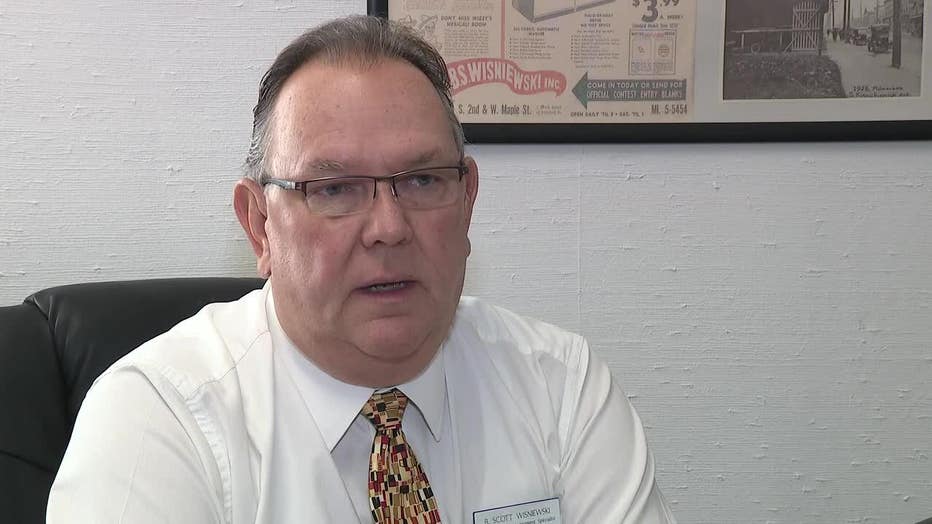
Scott Wisniewski
Wisniewski says most of the over-the-counter devices are ‘amplifiers’ and using them is similar to turning up the volume on a TV.
FREE DOWNLOAD: Get breaking news alerts in the FOX6 News app for iOS or Android
A hearing test can also reveal problems with pitch and frequency, not just volume. A test can point to underlying health issues that should be checked by a doctor, like infections or tumors. Anyone with sudden hearing loss should see a doctor immediately.
Ehlert bought her hearing aids through an audiologist. The devices cost her thousands of dollars but have lasted eight years, allowing Ehlert to enjoy her volunteer work all the more.
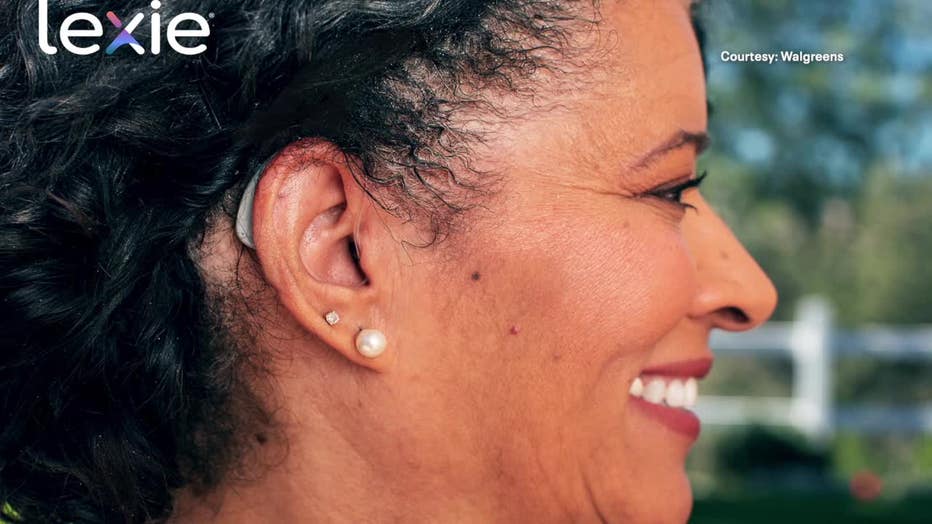
Insurance coverage for hearing aids can vary. Some plans cover the full cost and some plans cover nothing at all. Before buying over-the-counter hearing aids, Contact 6 recommends asking whether the device includes a trial period.

